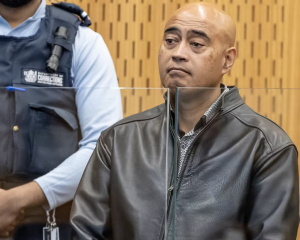
Monday
A pathologist says in hindsight a full postmortem examination should have been completed on Lachie Jones’ body.
Coroner Alexander Ho’s inquest into the 2019 death of the 3-year-old continued at Invercargill on Monday.
Police concluded the boy had drowned after he was found face up in a Gore oxidation pond more than 1.2km away from his home. A postmortem reached the same conclusion.

The pathologist, who has interim name suppression, said he "reluctantly agreed" to examine the toddler.
He explained Southland was not well-equipped to do autopsies on children and any child death was usually referred to a forensic pathologist.
"I do a lot of things that could be better done at a bigger centre," the witness explained.
"It’s either I do the autopsy or no autopsy sometimes."
Two coroners directed a forensic postmortem, but after a lengthy discussion with police the direction was withdrawn and a full postmortem was directed.
The court heard a full postmortem includes opening up the head and examining inside, something the pathologist did not do in this case, meaning the autopsy fell into the category of a "lesser postmortem".
"I saw no indication of any kind of trauma ... and combining [that] with the police findings I thought it was adequate, other possibilities were excluded."
The witness recalled after completing most of the autopsy he called the corner and they decided cutting open the head was unnecessary.
He said this was not uncommon if the cause of death could be established without examining the head, but he explained drowning was a diagnosis of exclusion.
"You don’t find any evidence of drowning in cases of drowning," the doctor said.
Counsel assisting the coroner Simon Mount, KC, asked if the head should have been opened to further exclude other causes of death.
"In hindsight, yes," the witness replied.
Dr Martin Sage, a forensic pathologist, was critical of this decision.
"I strongly feel it is very unfair for [Dr Sage] to criticise an autopsy he himself should’ve done and I did not want to do," the witness said in 2021.
While Lachie’s lungs were lighter than average, the pathologist said a "dry drowning", where water does not enter the lungs, could occur.
The court heard this was seen in less than 10% of cases.
"In my opinion, the cause of death still would be drowning unless someone can find an alternative diagnosis," the witness said.
His autopsy report did not include anything of note on Lachie’s feet despite the rough, gravelly surface he was believed to have walked on to get to the oxidation ponds.
"Nobody ever made any suggestion there was any kind of distance or any kind of gravel or anything," the witness said.
"I was told it was a routine drowning."
Mr Little explained examining the head was an invasive procedure that involved large, visible cuts.
"If we don’t need to do something, to preserve dignity, we don’t do it," Mr Little said.
"We thought it was not justified with the evidence we had."
Yesterday morning the inquest heard from Lachie’s preschool teacher Leisa Diamond, who said the 3-year-old had a "good grasp of right and wrong".
"Lachie had the kindest soul; all the kids loved him," she said.
She said Lachie was compliant and enjoyed role-playing as a police officer.
"He was always too busy, immersed in play, to take off," she said.
Mr Mount asked the witness if she thought Lachie would climb the fence into the area where the oxidation ponds were.
"I don’t know if he’d have the interest to climb it ... I can’t comment on his capability," she said.
The inquest continues this week.








